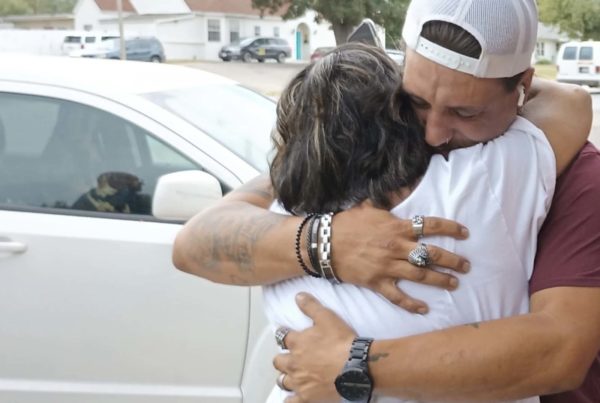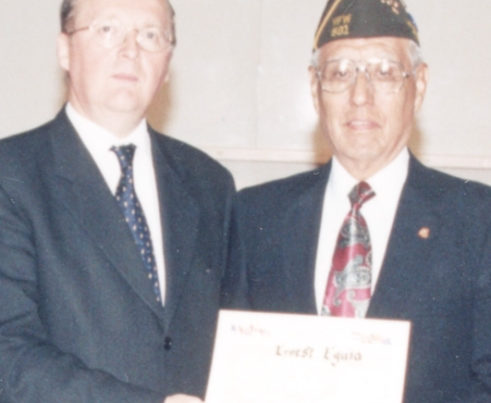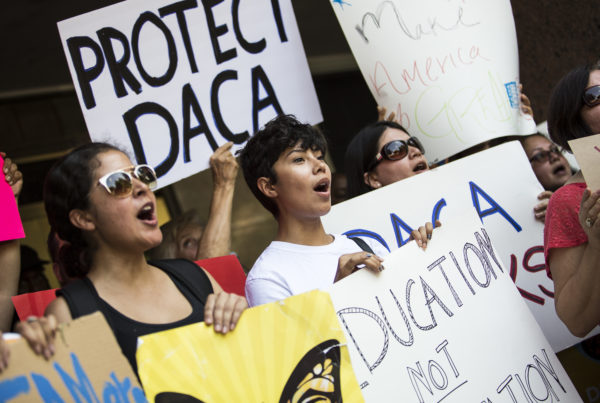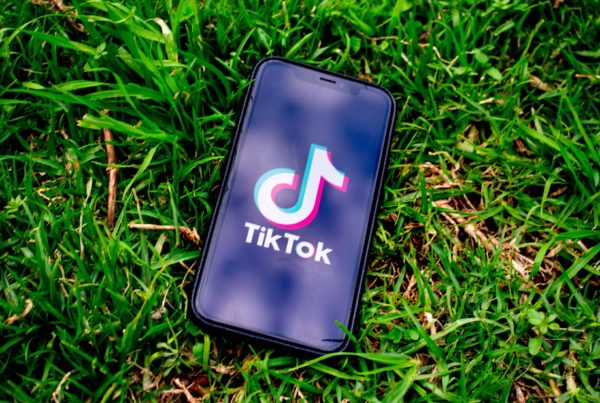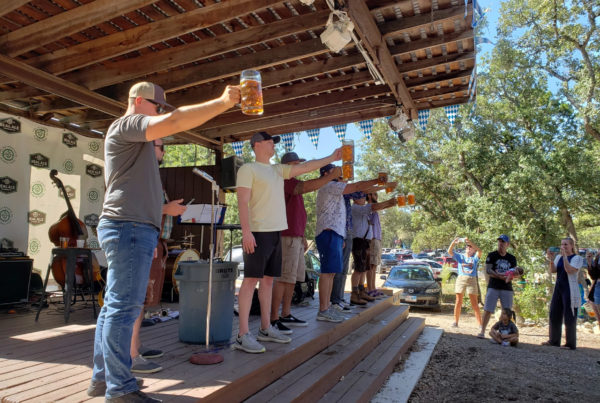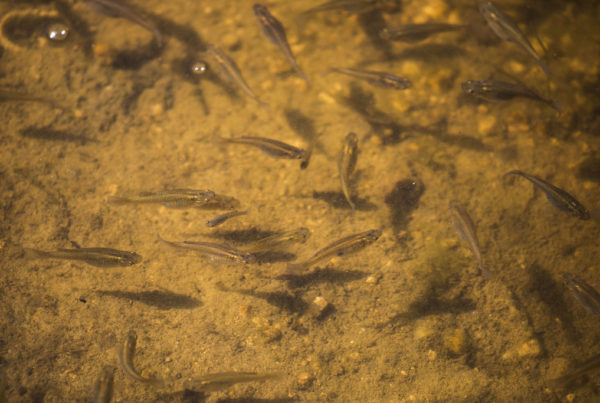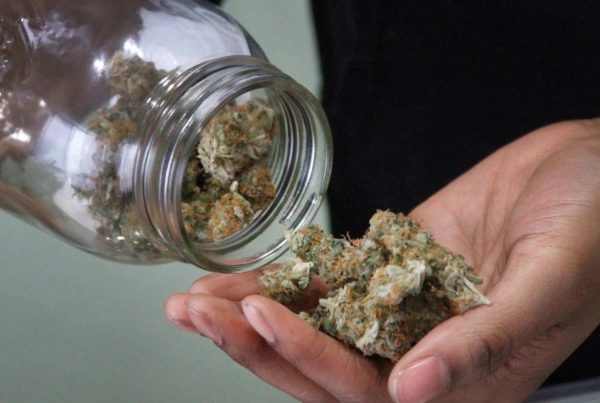President Joe Biden pardoned people with federal offenses for marijuana possession on Thursday and asked the attorney general to look into adjusting the drug’s legal classification.
“No one should be in jail just for using or possessing marijuana,” Biden said in a video. “It’s legal in many states, and criminal records for marijuana possession have led to needless barriers to employment, housing and educational opportunities. And that’s before you address the racial disparities around who suffers the consequences.”
The order directly affects about 6,500 people, since the pardon only covers federal convictions. But Biden is encouraging state governors to follow his lead.
Katharine Neill Harris, the Alfred C. Glassell, III, Fellow in Drug Policy at Rice University’s Baker Institute for Public Policy, spoke to the Standard about the action’s impact in Texas. Listen to the story above or read the transcript below.
This transcript has been edited lightly for clarity:
Texas Standard: It was a major announcement, and I presume that you were caught a little bit by surprise as well, no?
Katharine Neill Harris: Yeah. Well, you know, this was one of his promises on the campaign trail. President Biden had said that he would address marijuana prohibition. And so I think this announcement was certainly long-awaited and a welcome development from drug reform advocates and also many of his supporters.
Will it, as a practical matter, affect the lives of those that President Biden was talking about in that clip we just heard?
So as you mentioned, about 6,500 people or so it’s estimated that this would directly affect and would have federal convictions pardoned. I mean, that’s still significant for those people. The broader direct impacts of that are somewhat limited because, you know, most arrests and convictions for marijuana possession happen at the state level. I believe there is 300,000 or so arrests for marijuana possession last year, even though we have an increasing number of states that have legalized. So, you know, the direct impact is somewhat limited, but still significant. And it’s very important symbolically as well.
Just a moment ago, I was talking about the reaction from Beto O’Rourke. He’s pledging to legalize marijuana and to expunge the records of those convicted in Texas if he is elected governor. Abbott’s office issued a statement through a spokesperson saying: “Texas is not in the habit of taking criminal justice advice from the leader of the defund police party and someone who is overseeing a criminal justice system run amok with cashless bail and a revolving door for violent criminals. The Governor of Texas can only pardon individuals who have been through the Texas Board of Pardons and Paroles System with a recommendation for a pardon.” What do you make of the timing behind President Biden’s announcement? A lot of people reading politics into all of this?
Yeah, I think that politics certainly play a role here. Again, this was something that people have been expecting him to do since he did promise to address this issue on the campaign trail. And it’s a relatively easy issue for him to address in the sense that he doesn’t have to deal with Congress in order to issue the pardon. So, I mean, I certainly think that there was some time in consideration, this being in October. I think, you know, maybe one calculus here is to hopefully energize Democratic voters and people to go to the polls. I certainly think that does play a role here. That said, I mean, I think that the intent behind it was genuine. I think that this was something that the administration said it would address and has now followed through on that.
Last year, Gallup found that something like 68% of Americans favored legalizing marijuana for recreational use, not just medical use. That would suggest, if you just broke apart the numbers, that there’s significant bipartisan support, at least at the national level, for this kind of shift that the president is announcing. What about in Texas? What is your take on that?
So the public opinion polls on this issue in Texas show pretty consistently that a majority of Texans, including Republicans, do support either reducing or removing penalties for the use and possession of marijuana. The citizens of Texas are a little more evenly split when it comes to full commercial legalization. But when it comes to the penalty reduction or removing of those penalties, a majority of Texans support that. We’ve had multiple polls over the last several years that support that. So I think that the president’s announcement is consistent with the opinion of a majority of Texans on this issue.
I mentioned that, perhaps more consequentially, at least when you think about the current state of marijuana laws nationwide, president Biden asked the attorney general to look at whether marijuana should remain in that same legal class as drugs like heroin and LSD. What would changing this classification mean as a practical matter? Would it affect state laws directly?
It wouldn’t affect state laws directly, but it would have a significant impact. Right now it’s, as you mentioned, designated as a schedule one substance. This makes it very, very difficult to conduct research into the health effects, the benefits and the risks of of marijuana use.
This at a time when a lot of young people, for instance, are using vapes that contain high levels of THC that they purchase in states where, you know, weed is much more accessible.
Exactly. Right. And we now have a majority of states and a majority of the population that live in a state where they can use cannabis for medical purposes. And so the fact that our research is so far behind, even as, you know, policy and culture and public opinion have all said, “well, we think that this should be available for these medical reasons.” You know, that puts us at a real disadvantage from a public health perspective in terms of the knowledge gap between what we know long-term effects about, not just the use of marijuana flower but, as you mentioned, the vapes and the edibles and some of these concentrates versus what people are actually doing in practice.
An increasing number of people that are are turning to edibles, for example, because they don’t want to deal with smoking and the effects of that on the lungs. And there is certainly some research to support the effectiveness of marijuana for certain conditions, but we really don’t know enough. And that has been because the schedule one classification has really stymied research into that area, so that would be a very impactful change.
But there’s a little bit of a chicken and egg scenario here because there are real public health considerations. Should you be lifting or changing the schedule classification for something like marijuana when there are concerns that have been noted by many health officials nationwide, especially right now when it comes to the use and abuse of some of these substances?
So the schedule classification: schedule one substances are considered those that have high abuse potential and no medical value. The FDA has approved, you know, synthetic versions of cannabis for medical purposes. So the federal government itself acknowledged that there is some medical value to cannabis. So just in that right there, the fact that it’s in schedule one is inconsistent with the information that we have so far. I would also add that when we’re talking about the scheduling of substances, we don’t include tobacco and alcohol because those are legal substances. But, you know, both of those have high abuse potential and no medical value and they are not in schedule one.
Let me ask, to sort of pull back for just a moment: It would be hard to imagine at points in the country’s history a president coming up and issuing this sort of pardon and executive action when it comes to marijuana. How much of a watershed is this?
I think it’s very significant. I will say, I mean, I think that it’s been building over the decades. So you mentioned the Gallup poll earlier that shows that roughly 68% of Americans support legalization. You know, it was, I think, in the 60s, maybe 20% to 30%. So I think that the response right now from the Biden administration is sort of reflective of that larger shift in American public opinion. So I think that, you know, public opinion has really led on this issue. And now we’ve started to see policy makers catch up with that.




